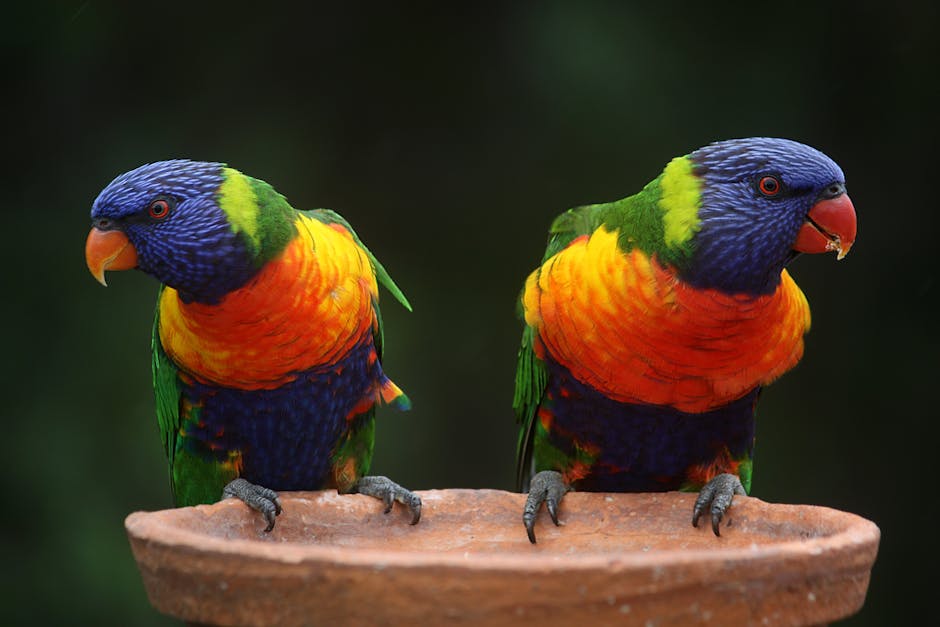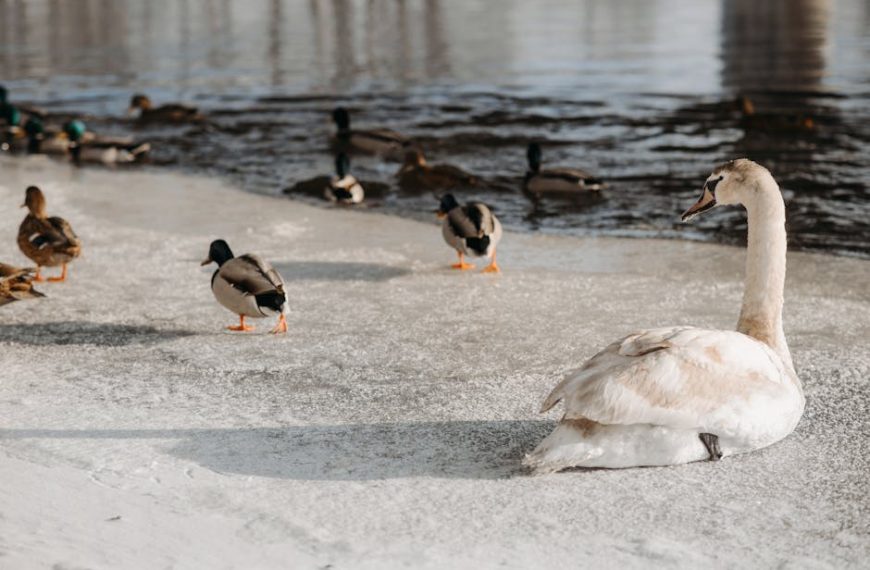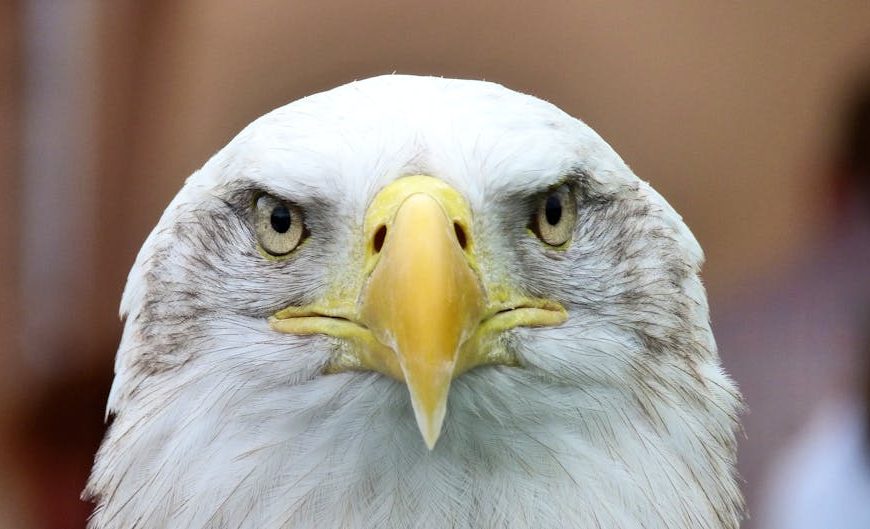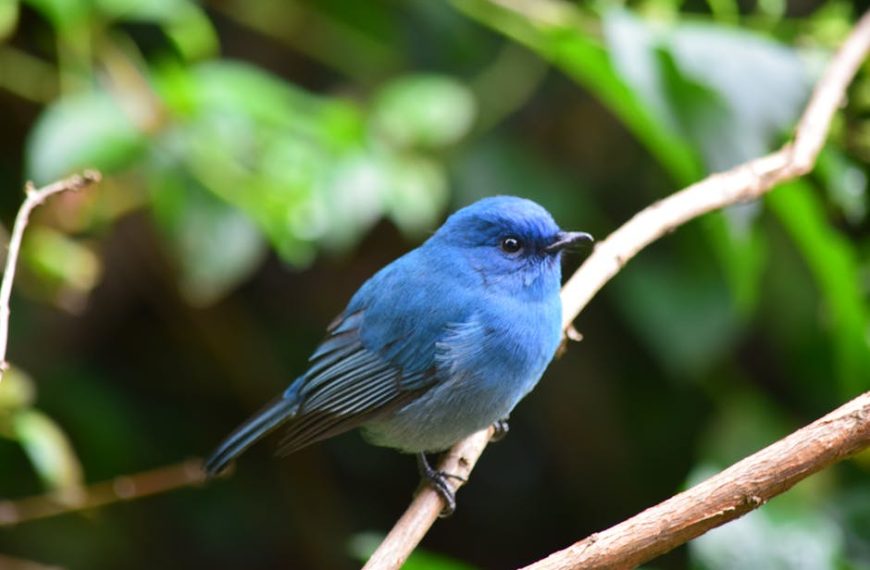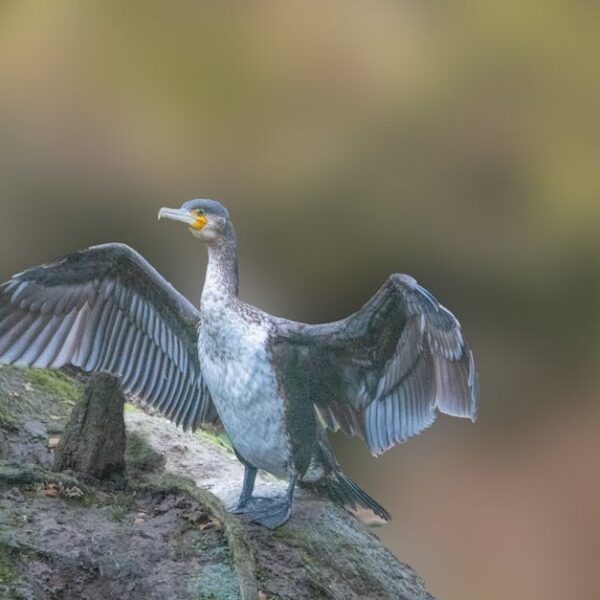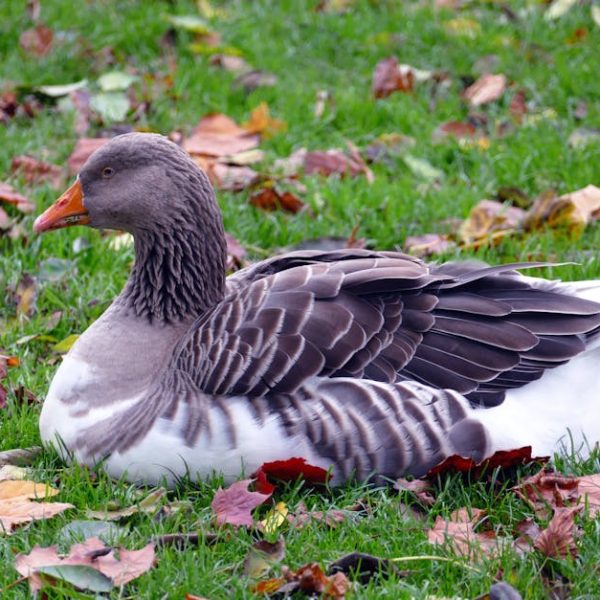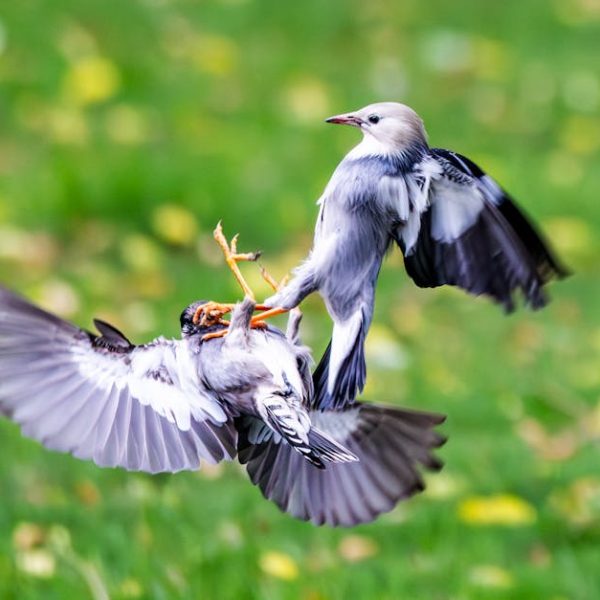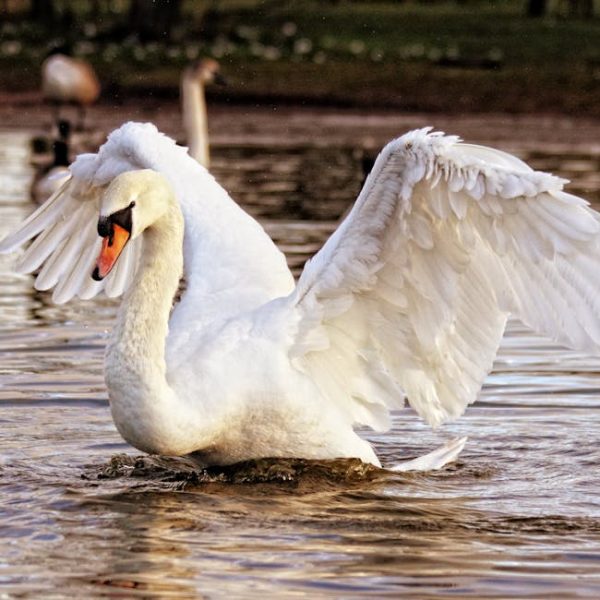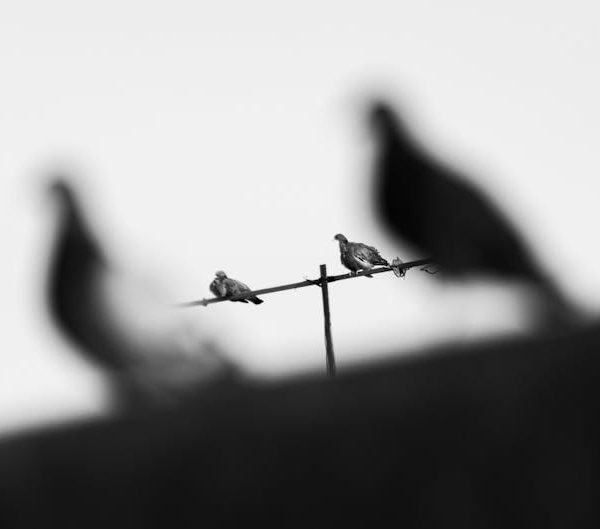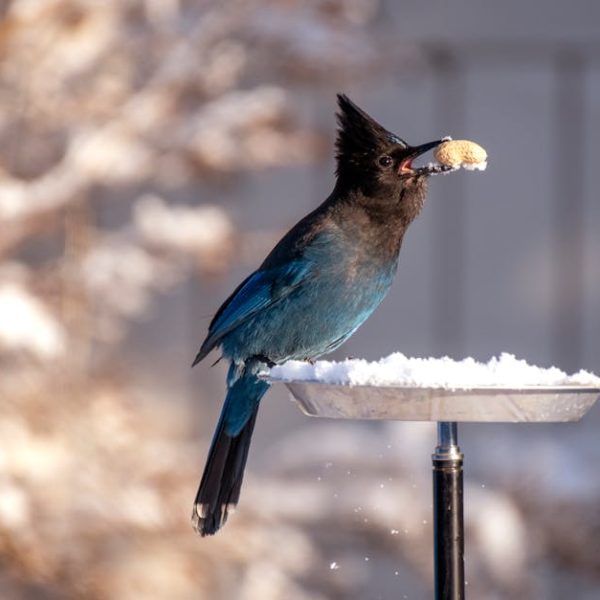Birds make noise at night for distinct biological reasons, influenced by their environment, and depending on their species. This fascinating habit of our feathered friends can range from soothing, ambient sounds to screeching calls, serving a whole range of purposes that are fundamental to their survival.
Biological Reasons for Nighttime Bird Chatter
Beneath the melodic trills and echoes lies the intricate dance of biology and nature. In essence, birds make noise at night due to their internal body clock or circadian rhythms, fluctuating hormone levels, and their unique nocturnal habits.
Artificial lights, for instance, disrupt their perception of day and night, causing them to sing at odd hours. Similarly, birds might croon love songs into the night, trying to attract a mate when competitors are less likely to interfere. They make noise to mark their territory against potential threats too.
So let’s remember, it’s natural behavior for birds to make sounds after dark. Though, yes, some species do take their serenades to another decibel level.
Effects of Urban Environment on Bird’s Nighttime Noise
Our concrete jungles have particular effects on these nocturnal symphonies. Due to city lights and human activities, an urban environment can significantly increase the frequency and volume of birds’ nocturnal calls.
There’s a stark difference in the nocturnal noise level of birds living in urban areas compared to those in rural or forested areas. Reflecting the city’s chaos, urban birds tend to be louder, whereas their rural counterparts resonate more with the sublime stillness of nature.
But fear not. With a few bird-friendly adjustments to your urban dwelling, you can moderate any unwanted avian disturbance without causing any harm to these chirpy creatures.
Common Nocturnal Bird Species
While all birds have some form of nocturnal activity, certain species are more famous for their nighttime songs. Much like the legendary night owls, nightjars, and mockingbirds that dominate the late-night radio.
Night owls literally led to the term night owl, indicating a night-loving person. Nightjars are not far behind with their peculiar churring sounds. And if you’ve had a strange sense of hearing the dawn chorus in the dead of night, blame the skilled mockingbirds, known for mimicking other birds’ calls, irrespective of daylight hours.
So, if you’re an aspiring akikomorito (a Japanese term meaning a person who enjoys staying up late watching birds), recognizing the distinctive sounds of these species will enhance your bird-watching experience.
All these contribute to the night soundtrack that provides a calming lullaby or a startling wake-up scream.
Benefits and Importance of Nighttime Bird Sounds
Birds’ nighttime noises serve important functions in their lives and the wider ecosystem, acting as channels for communication, mating calls, or alarms against predators.
For some birds, their nighttime concerts are an unparalleled display of their vocal prowess, meant to attract mates or communicate danger. These sounds, no matter how alarming for us, are for the birds, necessary correspondences that can determine their survival.
While it could be quite a task to appreciate these sounds when your sleep is being hijacked, understanding the ecological complexities behind these sounds strengthens our bond with nature.
To be continued…
What Can Be Learnt from Night Bird Sounds
The nocturnal symphony of bird sounds is more than a lullaby or curse to human ears, depending on whether you’re an early-to-bed type or a night owl. These sounds are an intricate tapestry that paints a detailed picture about the bird’s behavior, habits, or environment.
For instance, a sudden surge in agitated bird cries might indicate a lurking predator, or a complex melodious tune could be a male bird’s attempt to woo a mate. Similarly, a sudden change in bird sounds in an area could be an alarming indication of changing local ecosystems or the disturbing effect of urban development on wildlife.
So, observing and deciphering these sounds is not just for the birdwatchers or scientists amongst us but for anyone intrigued by the threads of the natural world. Moreover, it offers invaluable insights into their survival strategies, enriching conservation efforts and our understanding of biodiversity.
Remember, as you’re getting drawn into the fascinating world of nighttime bird sounds, it’s crucial not to cause distress to them. Respectful observation from a distance, without flashlights or intrusive behavior allows you to understand and appreciate these sounds while ensuring minimal disturbance.
Comparing Bird Noises: A night in the City vs. the Countryside
The striking aspect of bird sound observation is the difference noticeable within different environments. Let’s take a look at the typical bird noises you’d encounter during a night in the city versus the countryside.
| Urban Area | Rural Area |
|---|---|
|
|
Pro-tips for dealing with Nighttime Bird Noise
Below are some tips to ensure you get your beauty sleep and learn to enjoy these sounds without causing any distress to our avian friends.
Avoid using bright and glaring lights in your garden as they disturb the birds’ natural cycles.
Try to keep the urban noise levels down after sundown.
Use white noise machines or earplugs for a sound sleep if the birds are too noisy for your liking.
Get involved in bird preserving activities and spread awareness about their importance in our urban ecosystems.
Remember, birds share this planet with us and have as much right to express themselves. Next time you hear a squawk, a tweet, or a melodious tune in the dead of the night, just take a pause and appreciate the amazing world of nature’s best vocalists.
Key Takeaway:
- Birds make noise at night for several reasons such as adjusting their internal body clock, attracting mates, and warning against threats.
- Urban environments with city lights and human activities can significantly increase the frequency and volume of nocturnal bird calls.
- Different bird species like owls, nightjars, and mockingbirds are known for their distinctive nighttime noises.
- Nighttime bird sounds play key roles in communication, attracting mates, and indicating danger, adding to the biodiversity of ecosystems.
- Observing these sounds provides valuable insights into bird behavior and habits, contributing to conservation efforts and adding to the pleasure of bird-watching enthusiasts.
I assure you that understanding the reasons behind nighttime bird sounds can help us coexist better with them in our urban environments. Instead of viewing these sounds as disruptions to our sleep, seeing them as behavioral responses to their ever-changing environment will encourage more respect and admiration for these creatures. Remember that we can learn and benefit so much from observing and appreciating nature.
FAQs
Q: Can night bird sounds give any indication about the weather?
A: Yes, often birds’ calls and songs could indeed indicate weather changes. Some birds are known to chirp more just before a storm, while others fall silent.
Q: Are there any apps available that can help me identify birds from their night sounds?
A: Absolutely! There are several mobile apps available that can help you identify bird species from their calls and songs. Some popular ones include BirdNET and the Cornell Lab’s Merlin Bird ID.
Q: Does the season impact bird noises at night?
A: Yes. Bird songs are significantly more common during spring and summer seasons, which marks their breeding period. During these seasons, birds are known to sing even at night to attract mates and fend off rivals.
Q: Are there any health implications for birds that chirp at night due to artificial lights?
A: While studies are ongoing, artificial light pollution can disrupt bird’s sleep patterns, potentially leading to stress and disturbing their reproduction cycle.
Q: Can I do anything to encourage or discourage bird sounds at night in my backyard?
A: If you want to discourage night audio, you can employ strategies such as using blinds to block light spill from your house, keeping quiet, or not inviting birds with feeds or birdhouses. On the contrary, if you want to encourage birds, installing a bird bath or a birdhouse and keeping a natural, insect-friendly yard might help.
Do not hesitate to share this article and explore more posts on your website to deepen your understanding and appreciation of the world around us.
